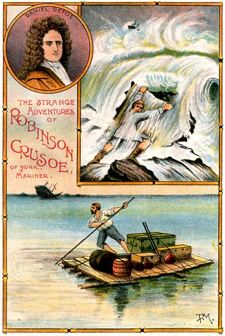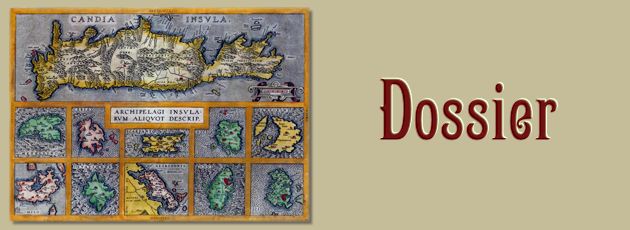Islands
Dossier
Hernán Díaz, SUNY, Albany, editor
 Although there are numerous narratives where islands are featured as idyllic retreats or penal colonies, both figures, primarily, of seclusion, thinking of insularity as a mere synonym of “confinement” seems truly insufficient. For it is also true that islands can be connecting nodes linking different worlds and mediums. This relationship between confinement and interconnectivity is one of the many ambiguities that define insular spaces. We could also think of the conjunction between a nostalgic vision (the island as the “virgin” space par excellence, a reservoir of an innocence impossible to find elsewhere), and an experimental drive (the island as a test site, where political and biological experiments are carried out). Islands, in this formulation, are either the last vestige of a faded past, or the first glimpse of some future yet to come. Even in their relationship with the continent, islands retain an ambiguous quality, and can be perceived either as a synecdoche of the mainland or as completely autarchic orders.
Although there are numerous narratives where islands are featured as idyllic retreats or penal colonies, both figures, primarily, of seclusion, thinking of insularity as a mere synonym of “confinement” seems truly insufficient. For it is also true that islands can be connecting nodes linking different worlds and mediums. This relationship between confinement and interconnectivity is one of the many ambiguities that define insular spaces. We could also think of the conjunction between a nostalgic vision (the island as the “virgin” space par excellence, a reservoir of an innocence impossible to find elsewhere), and an experimental drive (the island as a test site, where political and biological experiments are carried out). Islands, in this formulation, are either the last vestige of a faded past, or the first glimpse of some future yet to come. Even in their relationship with the continent, islands retain an ambiguous quality, and can be perceived either as a synecdoche of the mainland or as completely autarchic orders.
Perhaps the texts that best illustrate each of these extremes are Robinson Crusoe and Utopia. Defoe’s novel narrates the attempt to restore a lost continental order in a territory that is seen as a blank surface. The maroon, staring at the horizon (“The starved eye devours the seascape for the morsel / of a sail. / The horizon threads it infinitely” writes Derek Walcott in the “The Castaway”), always wants to return. More’s book, on the other hand, constitutes a new idea of state that bears no relation to prior models to be found in the mainland –in fact, Utopos, first king of Utopia, severs the isthmus that united what originally was a peninsula to the continent, thus creating what could be thought of as a voluntary or artificial island (and with it, a whole literary genre: that vast archipelago of utopian islands, from Bacon or Campanella to Barrie or Huxley).
Latin American Literature (in a strict sense, literature written in Latinate languages in the American continent) itself begins with an insular narrative. After all, Columbus never set foot on terra firma on his first journey. And as in many insular narratives, Columbus narrates his encounter with a “mysterious island,” an island that does not appear on any map or chronicle, an island containing life forms that defy every existing taxonomy, where yet untranslated languages are spoken. Furthermore, it wouldn’t be farfetched to think of the entire literary tradition of Latin America in insular terms –if, once again, we take the term beyond its claustrophobic connotations. Consider, for example, the tension between the need for self-affirmation (as in, for instance, the anthropophagic manifesto), and the desire to occupy a place, marginal as it may be, in the “western tradition” (as Borges had it in “The Argentine Writer and Tradition”). Or the self-exoticizing narratives in the worst spinoffs of magical realism, as opposed to the attempts to find a Latin American literature that is specific enough without falling into the pitfalls associated with the notion of “identity.”
La Habana Elgante has been addressing the question of insularity in the Spanish-speaking Caribbean for many years. This dossier has the purpose of expanding this issue beyond that realm. Paul Stasi’s essay on Richard Flanagan and Lincoln Shlensky’s text on Glissant are part of this expansion of geographic and linguistic confines. The selection of literary texts also has been thought of as an archipelago that offers representations of islands beyond the Caribbean shores.


